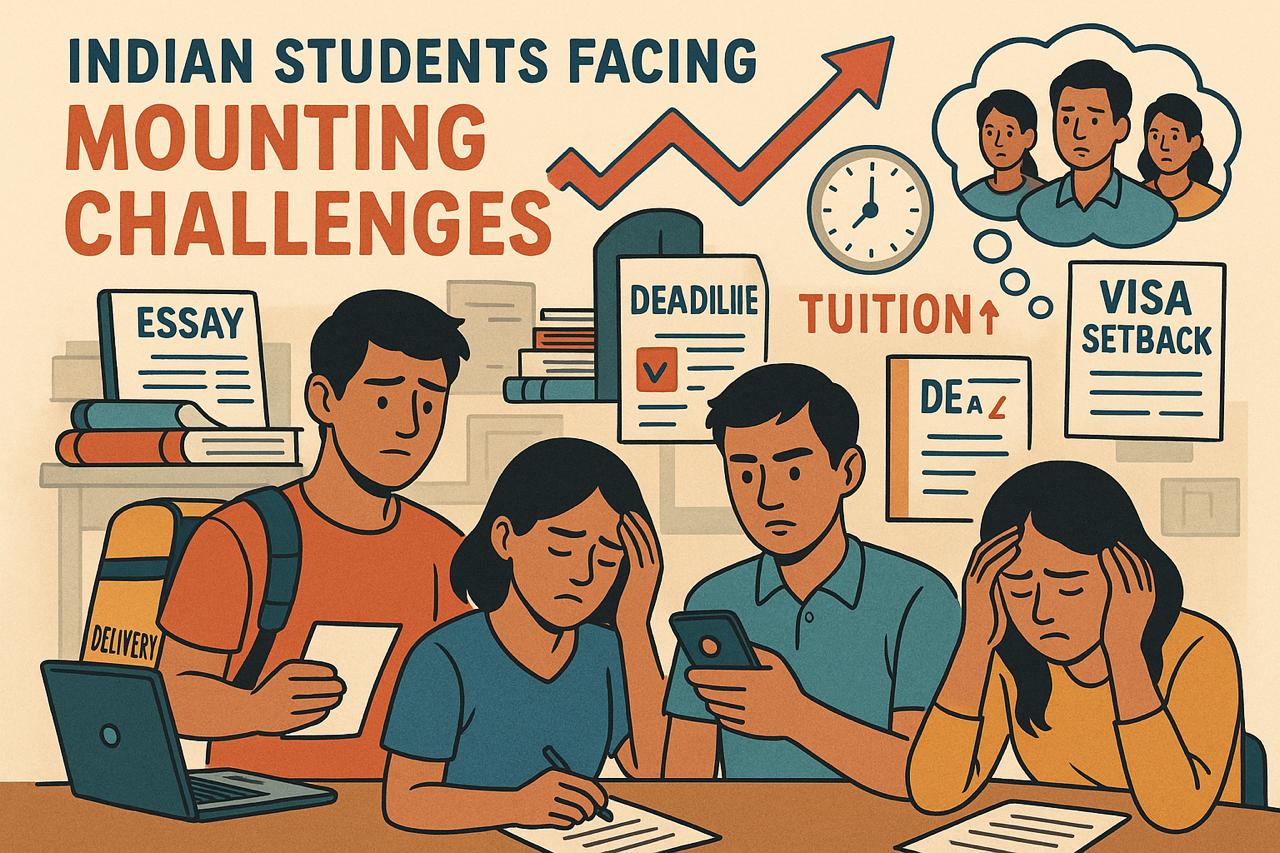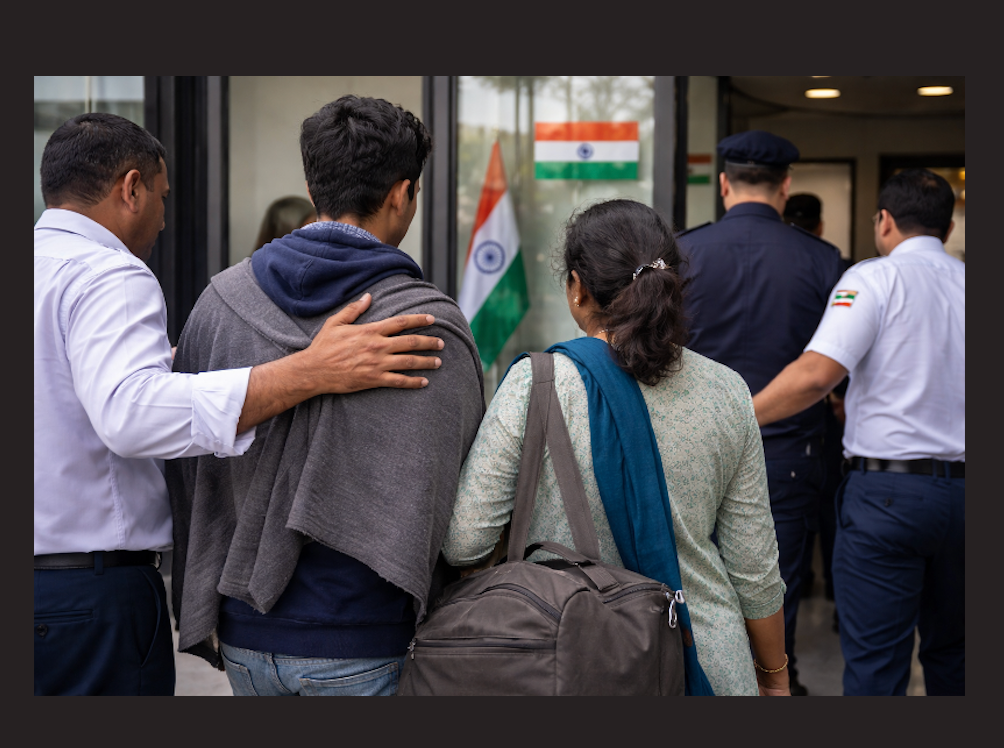Dreams on Hold:
-
New rules in USA, UK, Canada and Germany pose new challenges
-
Experts advise that those considering international education should conduct thorough research, seek expert guidance, and prepare comprehensive documentation
-
The window of opportunity may still exist — but it is narrower, costlier, and far more competitive than ever before
Amid rising aspirations of Indian students to pursue higher education abroad, recent developments from major destination countries — the United States, Canada, the United Kingdom, and Germany — suggest a sobering reality: the pathway to international education and employment is becoming significantly tougher.
USA: Jobs Dry Up, Visa Crackdown Intensifies
Indian students, once drawn to the United States for lucrative job prospects, are now finding it increasingly difficult to secure employment after graduation.
In his X post, Rajesh Sawhney, a Gurgaon-based entrepreneur and founder of GSF Accelerator, has voiced strong concerns, warning families to reconsider the high costs of foreign education.
“There are no jobs in the USA, Canada and the UK for international students. Honeymoon is over,” he posted on X (formerly Twitter), highlighting the diminishing returns of a once-reliable formula: studying abroad and quickly landing a six-figure job.
Especially for Indian engineering graduates, including IITians, the well-trodden path of earning a Master’s degree in the U.S. and securing a $200K starting salary is no longer a given.
Adding to the uncertainty, the U.S. State Department has recently imposed visa bans on owners and executives of Indian travel agencies allegedly involved in facilitating illegal immigration.
While the names of those sanctioned have not been disclosed, the move reflects Washington’s intensified scrutiny of visa channels, potentially complicating legitimate applications as well.
Canada: Sharp Drop in Indian Student Visas
Canada, once hailed as one of the most welcoming countries for international students, is now actively limiting admissions. According to Immigration, Refugees and Citizenship Canada (IRCC), study permits issued to Indian students dropped by 31% in the first quarter of 2025, falling from 44,295 to 30,640.
This sharp decline is part of a broader effort to control immigration. In 2023, Canada issued over 278,000 study permits to Indians. That number fell to 188,465 in 2024 and is projected to drop further as the government enforces a study permit cap of 437,000 for 2025 — lower than 2024’s limit of 485,000.
New financial requirements are also deterring applicants. From January 2024, students must show proof of funds amounting to CA$20,635 (approx. ₹12.7 lakh), more than double the previous benchmark. Further, universities (Designated Learning Institutions or DLIs) must now verify every admission letter, adding another bureaucratic layer to the process.
Prime Minister Mark Carney has reaffirmed this restrictive stance, announcing that temporary residents — including international students — will be capped at 5% of the total population by 2027.
A Tough Road Ahead:
- With visa policies tightening, financial requirements increasing, and job markets becoming less accessible, the once-glamorous path of studying abroad now requires careful reconsideration
- For Indian students and their families, it is no longer just about gaining admission — it’s about navigating a complex, high-stakes environment with no guarantees of post-study success
UK: Diminishing Post-Study Opportunities
Though not explicitly referenced in current visa policy changes, the United Kingdom is also becoming a less attractive destination due to limited job opportunities for international graduates. Rajesh Sawhney’s comments include the UK in his cautionary tale for aspiring Indian students, indicating a broader trend of reduced employability even after completing prestigious courses.
Post-study work opportunities are often limited by visa rules, employer sponsorship constraints, and high competition — making it increasingly difficult for Indian students to secure long-term employment in the UK.
Germany: Visa Appeals to End, Stakes Higher
Germany, too, is tightening its visa system. Starting July 1, 2025, the country will discontinue its informal remonstration process — an internal mechanism through which visa applicants, including students, could challenge rejections without legal intervention.
Applicants will now be left with two expensive and time-consuming choices: reapplying from scratch or initiating a formal legal appeal through Germany’s Administrative Court system, which can take up to two years.
This policy shift, according to Germany’s Federal Foreign Office, is designed to streamline visa processing and reduce staff burden. However, for Indian students — who make up a large share of Germany’s international applicants — this means greater pressure to submit flawless applications the first time.
To support this transition, Germany has launched a Consular Services Portal aimed at simplifying and digitizing the visa process. Early feedback suggests improved document quality and reduced delays, but the elimination of remonstration remains a significant hurdle for applicants who might previously have recovered from minor application errors.










